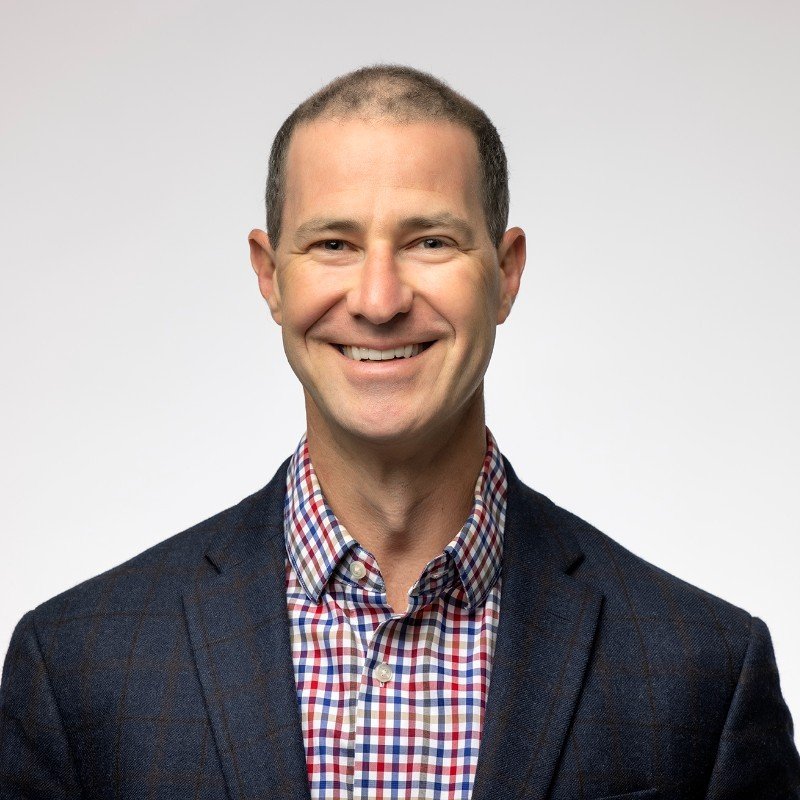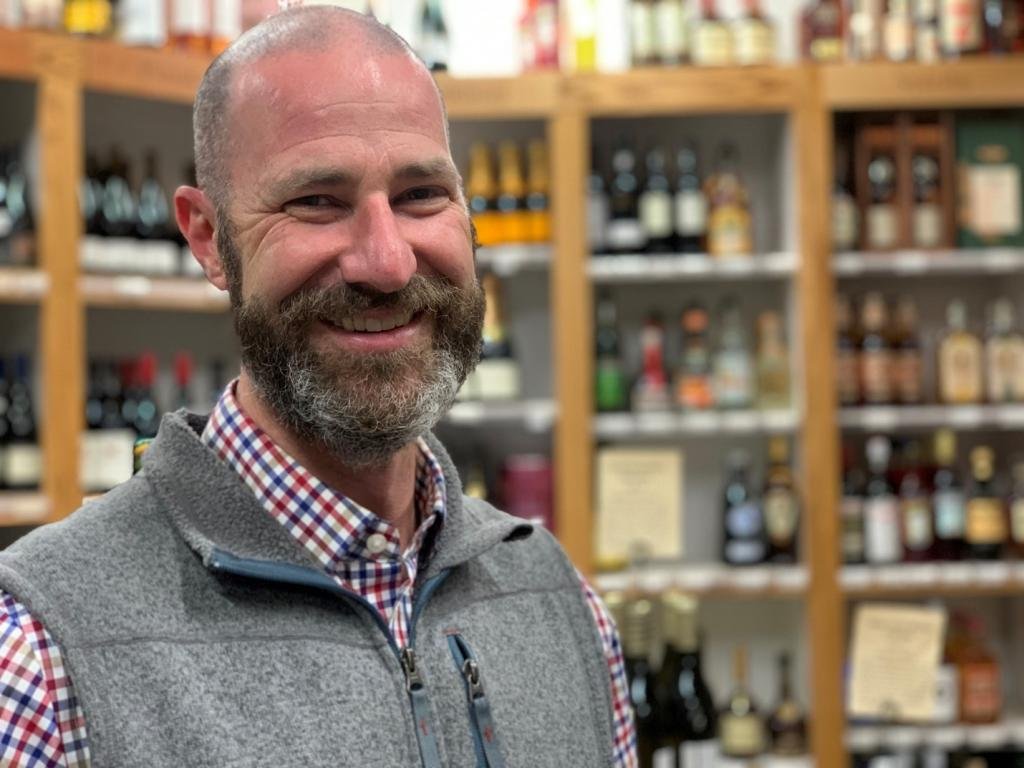Stephan Abrams
MEMBER NAME
Stephan Abrams
COMPANY
Top Shelf Collective
INDUSTRIES
Retail
Stephan Abrams, Founder CEO of Top Shelf Collective
THE CHALLENGE
Just like many business owners in the early stages, Stephan Abrams was trying to do everything himself. He’d taken on so many small tasks that he didn’t have the time or energy to do any big-picture thinking.
In the summer of 1999, Stephan moved to Jackson Hole, Wyoming, where he started working at a retail shop called The Liquor Store. After a few years, the owners decided they wanted to take a step back and offered an ownership opportunity. Stephan raised his hand. Committed to ownership, he soon became a partner. Since then, he’s launched another retail business, Jackson Hole Marketplace, as well as a wine storage and commercial storage company, and other independent entities, all under the umbrella of Top Shelf Collective.
Stephan’s Zone of Genius, it turns out, is doing deals—not dealing in all the details. To shine in that space—and scale as fast as he knew he was capable—he had to build a team that did all the other jobs better than he could.
Keep reading to find out how Stephan grew the business from one dozen employees to 50 and tripled his revenue in just six years by surrounding himself with all the right people—and delegating accordingly.
THE JOURNEY TO tHE 0.01%
According to Stephan Abrams
MAKE TIME TO WORK ON THE BUSINESS
Before I joined The Lions Pride, there was never a discussion about how to work on the business versus in the business. I was always in.
Everybody came to me for all the answers. When it was time to open the store, it was all me. When somebody called out sick, I was at the register, stocking the beer cooler, or constantly filling in the gaps. I was in it to win it, but I was losing.
Working on the business now provides a deeper view of who I am as a person, who I am as a leader, and what I want the business to be for me, my team, and my community. I now make time to cast my vision for the business and the kind of team that wants to help bring that to life.
I’ll be honest; shifting from in to on was tough, and I was sometimes a little lost. I always felt like I should be jumping in. The truth is that you can’t expect others to take ownership of their responsibilities if you don’t stop taking ownership. There can only be one task owner, and you must trust your team to step up and step into their roles.
Once I figured that out, I had to re-evaluate myself to ensure I was still bringing value to the business side through the visionary side of things.
Knowing that my leadership team takes the same ownership of their responsibilities as I would is phenomenal. I’m providing them the opportunity to provide impact to the business—instead of robbing them of the chance by swooping in and taking it from them. Having faith in my team has provided us the freedom to do what we’re each here to do and do it better than anyone—and it’s certainly better than I could do all by myself.
THE BUSINESS IS NOT ABOUT YOU
One of the first things I did was start bringing the leadership team together to start working on the OPBP, the One Page Business Plan, stating the core values and the purpose. Sharing the vision with the team has helped build the team. We’re all on the same path.
At a certain point, you have to learn how to have faith in other people. What will help me continue growing the business is having other people that can help bring to life the vision but who are smarter than I am. I could have never grown revenue the way it has by myself.
The business is not about me. The business is bigger and greater than I am. And that’s the point, isn’t it?
As we expanded the team’s knowledge, we started sharing more revenue and expense details. We dive deep into how each person influences our gross margin. And it’s not just how items are priced, but how every action you take in the store influences that number. At first, I was nervous about sharing financials, but it’s really helpful for people to see how they can personally influence the numbers and what it takes to create exponential growth.
DON’T BE AFRAID TO TAKE A VACATION
I learned from a very young age that life was about work. I wasn’t taught how to take time off or how to take a vacation. Before, even when I had additional partners, if I went out of town on vacation, I felt obligated to check my email and see how certain things were going in the business. That’s not a vacation. It’s a business trip. And it’s not fun for anyone (trust me).
As people, we need that time to give our minds a break, but also to give our minds the space to be exposed to other environments. When you go on a vacation, and you leave your normal, everyday routine, you are allowing yourself to step out of your circle of regularity and go into something different. It’s good for the brain. We need to be able to absorb other cultures if we’re going to go into a different country or even a different part of the United States. The cultures change wherever we are.
Now, when I’m at work, I’m really at work, doing my thing. But when I’m on vacation, I’m really on vacation, and I enjoy every moment with my family. My team knows I’m not available, and they have the tools to figure it out. Unless there’s a hurricane or a forest fire, I’m not available. That’s freedom.
And this translates to my team as well. When a team member takes time off, I don’t expect them to reply to emails or text messages, and I certainly don’t expect them to check in. I respect their time when they’re away, and I want them to respect their time when they’re away.
Stephan (far right), at a recent Tactical Advance near Jackson.
WHY I JOINED THE COHORT
Bill and I had met around town as part of the entrepreneurial community in Jackson, Wyoming. We crossed paths in the checkout line at K-Mart, and he started asking me questions about how the business was going. He walked me out to my car, and we traded numbers. He promptly engaged with me, and I considered the opportunity. At that time, I was just beginning to operate with a different mindset of how to operate a business with the understanding of life-work balance.
One of my original mentors was saying, “Well, I did it all. And you’re going to need to do it all as well.”
That was the unstated message that was passed to me through many conversations. Back then, work was measured not by what was accomplished but by how much time I spent in the business versus on the business. And I definitely had work to do there.
Using the Lions Pride systems, I began to tip the scales. I now have people on my team who support me to be the visionary for the business and say, ‘You give me that task so you can focus on what you need to be doing.’
We’ve extended this structure to all our entities in Top Shelf Collective. We all have the same purpose. We all have the same vision and the same core beliefs, the same code of conduct, and the same natural laws of business. We built everything using the tools, training, and feedback I’ve received through The Lions Pride.
Watch Stephan's talk about his accelerated journey with Bill Watkins below.
“I now thoroughly enjoy what I do every day, personally and professionally. It is not a drain. It energizes me to be where I am and to be able to enjoy the moments I have with my family and friends when I’m outside of work. Considering where I was when I started, that is definitely saying something.”
“Not only do you not have to do it all, you shouldn’t do it all. There’s no human on the planet that can scale a business and do it all. Somewhere, there’s going to be a sacrifice, and it usually ends up to be either you, your health, or your relationships.”





